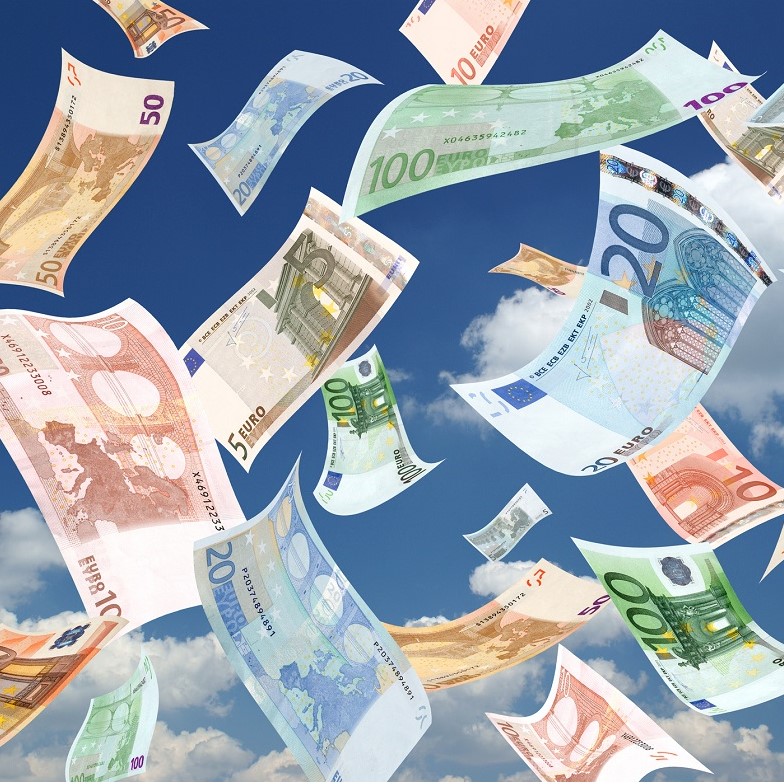15.04.2020
State aid and the corona pandemic
All EU Member States are responding to the corona pandemic with programmes to mitigate the significant economic impact on businesses by means of government support measures. If such measures constitute state aid within the meaning of Article 107 (1) of the Treaty on the Functioning of the European Union (TFEU), an EU Member State may only grant them if they have been previously approved by the European Commission ("Commission").
Only those aid measures that meet the conditions of the so-called General Block Exemption Regulation ("GBER") or de minimis aid (normally up to EUR 200,000 over three years) do not require approval by the Commission. If approval is required in an individual case, the procedure takes at least a few months in non-crisis periods. In order to drastically shorten this period, the Commission has published various communications, in particular the Communication from the Commission on a "Temporary Framework for State aid measures to support the economy in the current COVID-19 outbreak" of 19 March 2020 ("Temporary Framework", see 1.). Member States' promotion and support schemes which are within the limits of the Temporary Framework are approved by the Commission within a few days. On 3 April 2020, the Commission included further measures, which it will approve quickly, in the Temporary Framework. Its design is based on the Communication from the Commission in 2008 concerning a Temporary framework for State aid measures to support access to finance in the financial and economic crisis at that time. On the basis of the (amended) Temporary Framework, the Commission has so far approved a large number of aid measures very quickly. Further decisions can still be expected in the short term. In addition, the Commission has published a Template that will allow it to examine and approve aid to compensate for the economic damage caused by the corona pandemic much more quickly (see 2.). Not all financial assistance given to companies constitutes State aid. Those measures that are no State aid can still be used without prior Commission approval (see 3.). The Commission has indeed extended the scope of the Temporary Framework and is considering further facilitations in the short term. However, it will try not to relax the requirements in case of state support for non-corona related difficulties of companies. Whether it will succeed in doing so remains to be seen, especially since demands for more flexibility have already been made by politicians (see 4.).
The Temporary Framework allows for a very quick assessment and - if the Member State's assistance scheme complies with the requirements of the Temporary Framework - the Commission will consider such State aid compatible with the internal market on the basis of Article 107(3)(b), 2nd alternative TFEU. The Commission last extended the Temporary Framework on 3 April 2020. In particular, it allows the rapid approval of the following measures, provided that they do not exceed EUR 800,000, gross, per undertaking:
- direct grants, repayable advances, tax or payment advantages;
- state guarantees on loans where the loan principal does not exceed 25% of the total turnover of the beneficiary in 2019, whereby the guarantee may cover up to 100% of the public authorities' risk,
- interest-free loans or subsidised interest rates for loans.
The temporary aid measures provided for by the Temporary Framework may also be cumulated with aid falling within the scope of the de minimis Regulation, for example, to increase the aid per undertaking to up to EUR 1 million.
The Temporary Framework also ensures the rapid approval of the following measures, to which the ceiling of EUR 800,000 does not apply:
- Granting of short-term export credit insurance for the export of goods in countries where cover for marketable risks is not available;
- deferments of taxes or social welfare contributions for certain undertakings or industries particularly affected by COVID-19, until 31 December 2022 at the latest;
- Monthly wage subsidies of up to 80% of the monthly gross salary for those undertakings "that are particularly affected by the COVID-19 outbreak", so that they can continue to employ without interruption those workers whom they would otherwise have dismissed due to the COVID-19 outbreak;
- direct grants, repayable advances or tax benefits for research and development of products to combat coronavirus (COVID-19). This includes in particular the development of a vaccine, pharmaceuticals and the active substances and raw materials required for this purpose, medical equipment, such as ventilators, protective clothing and disinfectants and the intermediates and raw materials required for this purpose, diagnostic equipment as well as data collection and data processing tools necessary for research; as well as
- aid for the construction or upgrade of testing and upscaling infrastructures required to develop, test and upscale, up to their first industrial deployment prior to mass production, COVID-19 relevant products and subsequent manufacture.
Even after its amendment of 3 April 2020, the Temporary Framework will in principle apply only to undertakings that are not in difficulty, unless they get into difficulty after 31 December 2019. However, in the amended Temporary Framework, the Commission no longer requires that the beneficiary companies must have got into difficulties 'as a result of the COVID 19 outbreak' in order to benefit from aid. Rather, it is sufficient that the undertaking was in difficulty only after 31 December 2019, without the Member State having to explain to the Commission why it was in difficulty.
In accordance with the exception in Article 107 (3) (b) 2nd alternative TFEU, aid may be considered compatible with the internal market only in so far as it is granted 'to remedy a serious disturbance in the economy of a Member State'. The Commission currently considers such a serious disturbance of the economy as a result of the corona pandemic to be present in all EU Member States, which it explicitly states in the Temporary Framework (see Temporary Framework, point 18). Moreover, it has a wide discretion in interpreting to what extent aid is still intended to remedy such a disturbance. The Commission has set out the principles on the basis of which it intends to decide on State aid in the Temporary Framework. In order to be approved, the aid must in particular meet the following conditions:
- the aid may in principle not be granted to any undertaking in difficulty within the meaning of Article 2 No. 18 of the GBER. Only if undertakings experienced economic difficulty after 31 December 2019 will they be eligible for aid under the Temporary Framework, as well;
- the aid may be granted no later than 31 December 2020;
- special conditions apply to the agricultural, fisheries and aquaculture sectors, such as lower aid ceilings (see point 23 of the Temporary Framework);
- state loans and guarantees with limited duration and limited loan or guarantee amount (e.g. limitation of the amount to 25% of the annual turnover of the borrower and limitation of the term of the loan to 6 years with a guarantee of 100% of the loan amount).
On the basis of the Temporary Framework, the Commission has already approved several aid schemes from 16 EU Member States (including four schemes of the Federal Republic of Germany as of 7 April 2020). At the end of 2020, the Temporary Framework ends. Before this date, the Commission will assess whether an extension is necessary. The Temporary Framework is available at ec.europa.eu/competition/state_aid/what_is_new/sa_covid19_temporary-framework.pdf The first amendment to the Temporary Framework of 3 April 2020 in the sense of additions and extensions is available at ec.europa.eu/competition/state_aid/what_is_new/sa_covid19_1st_amendment_temporary_framework_en.pdf The Commission has also published a Template summarising the information to be provided by the Member States in this respect (https://ec.europa.eu/competition/state_aid/what_is_new/notification-template-for-aid_temporary-framework-coronavirus.pdf).
For aid granted by the EFTA States Liechtenstein, Norway and Iceland, the EFTA Surveillance Authority (ESA), which is competent in this respect, applies the Temporary Framework to the aid schemes in the EEA Treaty accordingly (http://www.eftasurv.int/state-aid/state-aid-rules-and-covid-19/).
In accordance with Article 107 (2) (b) TFEU, State aid to make good the damage caused by natural disasters or exceptional occurrences is compatible with the internal market. Such aid must also be approved by the Commission. In order to also speed up the approval process on the basis of this provision, the Commission has published a further notification summarising the information to be submitted by the Member States (https://ec.europa.eu/competition/state_aid/what_is_new/Notification_template_107_2_b_PUBLICATION.pdf).
In this respect, the Member State must explain in particular,
- whether the alleged damage was caused exclusively by the corona pandemic; and
- whether the aid scheme is intended solely to make good the above-mentioned damage.
If these and other conditions of Article 107(2)(b) TFEU are fulfilled, the Commission must approve the aid. The principle introduced by the Commission's guidelines on State aid for rescuing and restructuring, according to which rescue and restructuring aid may be granted only once, does not apply in this respect. So far, the Commission has approved only a few aid measures in the context of the corona pandemic on this basis. The rest of the aid was approved under the Temporary Framework.
No aid incompatible with the internal market within the meaning of Article 107(1) TFEU are among others the following measures which a Member State might take to combat the corona pandemic:
- measures that benefit all companies and industries, such as subsidies for short-time work, wage subsidies or tax advantages (e.g. deferral of corporate income tax and VAT or social security contributions);
- provision of funding for health services or other public services of general economic interest.
On 13 March 2020, the Commission published a European coordinated response to counter the economic impact of the coronavirus which sets out these and other options.
In the short term, the Commission is expected to take many more decisions quickly approving national aid programmes. Despite the urgency of the situation, it will try to leave as few loopholes as possible for companies that make use of State aid, without the need for it having been caused by the current corona crisis. The Commission's State aid practice during the financial crisis has shown that the Commission does not stand in the way of rescue measures, but keeps a close eye on national schemes, for example by limiting their approval in time in order to apply stricter standards again when the time comes.
The Minister for Economic Affairs of France states that the Commission must show far more flexibility than before in order to be able to absorb the consequences of corona, especially for the domestic automotive and aviation industries. According to him, the measures taken so far are correct, but do not go far enough. He also reiterates his call for a reform of European antitrust and State aid rules to enable European companies to occupy key industries and thus make the EU independent of non-European companies. Such a reform is more important than ever in view of the corona pandemic, he says.

Dr Helmut Janssen, LL.M. (King's College London)
Partner
Brussels,
Dusseldorf
helmut.janssen@luther-lawfirm.com
+32 2 627 7763 / +49 211 5660 18763 / +49 1520 16 18763
